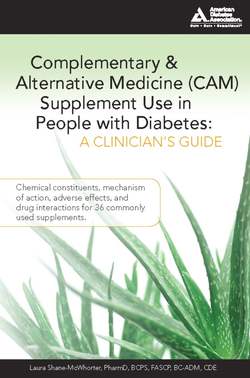Читать книгу Complementary and Alternative Medicine (CAM) Supplement Use in People with Diabetes: A Clinician's Guide - Laura Shane-McWhorter - Страница 33
На сайте Литреса книга снята с продажи.
Summary
ОглавлениеThe evidence for bitter melon has come from mostly small studies with weak study design. One small trial indicated that bitter melon may decrease A1C after 7 weeks of use,90 but there are no long-term trials. Although some patients may benefit from using bitter melon, it may cause low blood glucose when combined with traditional diabetes medications. It should be used with caution by young women of childbearing age, since it may induce menstruation and inadvertently cause miscarriage. There is no information regarding use in lactating women, so it should be avoided in this population. Children should not use bitter melon, since serious adverse effects have occurred, including hypoglycemic coma. Individuals of Mediterranean or Middle-Eastern descent with known G6PDH deficiency or those who have allergies to the melon family should also avoid use. There is no traditional dose, since different forms have been used, including juice, powder, vegetable pulp suspensions, and injectable forms. One source indicated that the dose would be 1 small unripe melon eaten daily or 50–100 ml fresh juice drunk daily with food.85 However, tinctures and oral supplements are emerging as available sources. Overall bitter melon may be considered safe when eaten as a vegetable, but it is not consistently safe when used in supplement form.
